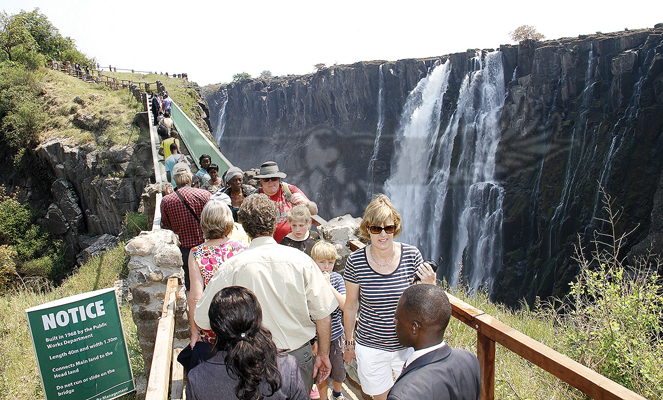Reap low hanging tourism fruits
For many years, tourism has been one of the key industries driving economies in most, if not all, African countries.
In the last two decades, several countries had been increasing investments in product development and enhancement, aggressive marketing coupled with appropriate business reforms to ensure that their tourism products become preferred destinations by both discerning domestic and international tourists.
Spreading its tentacles into a myriad of other economic activities, tourism players had been enjoying a boon in business. Collectively, the sector had also been contributing immensely to the gross domestic product of most African economies — Zimbabwe included.
However, that narrative has changed following the outbreak of Covid-19 and the devastating impact it has had globally since the first positive case was reported in 2019.
The global impact of the virus has been devastating and it now calls for new strategies to revive and sustain the sector, which last year took a huge dip, for the first time in 11 years.
With the increasing new cases of Covid-19, the sector may not recover any time soon as countries continue to tighten travel restrictions to curb new infections.
According to the United Nations World Tourism Organisation (UNWTO), 2020 was the worst year in the global tourism sector, which recorded a 74 percent decline in international arrivals, with an estimated US$1,3 trillion revenue loss.
The organisation attributed the slump in global tourism performance to unprecedented fall in demand and widespread travel restrictions induced by the Covid-19 pandemic.
The organisation noted the loss is unprecedented and is even 11 times more than the loss recorded in 2009 during the global economic recession.
UNWTO reports that the destinations worldwide welcomed one billion fewer international arrivals in 2020 than in the previous year, due to a sharp fall in demand and wide spread travel restrictions, putting between 100 and 200 million jobs in the tourism sector at risk.
With more countries recording new cases amid growing concerns of a new Covid-19 variant, the die has already been cast on tourism. The sector that is likely to suffer huge losses again this year, with countries maintaining the travel lockdowns.
Barely into the first quarter of the year, health systems for most countries in Africa are stretched to limit as new Covid-19 cases are recorded daily.
The economic downturn caused by Covid-19 has also resulted in massive job losses in some sectors and growing levels of poverty.
Already countries are now seized with buying vaccines for their citizens in anticipation for a fall in new infections.
Literally, everyone is seized with trying to remain safe, therefore, planning to go on a holiday is the last thing on anybody’s mind.
In the midst of all this, the tourism sector needs to plan for its sustenance through a number of inward looking initiatives, while waiting for the gradual restoration of normalcy and the subsequent return of international tourists.
Since borders of most countries are still closed, domestic tourism is the low hanging fruit that stakeholders can pick to jump-start their business.
The absence of international tourists also presents local tourism players with an opportunity to put their house in order through renovations to match international standards, reviewing pricing models and enable tourists to tour all the country’s tourism destinations as part of a package.
Local players can also introduce holiday packages for the local discerning tourist who might be eager to visit the local to attractions, but cannot afford the pricey packages which are often pegged using rates for international travellers.
Over the years, there has been a public outcry over the pricing model of the tourism industry, with locals calling for differentiated pricing and bundling so that they can pay less than international tourists.
However, the pricing issue has not been addressed.
Tourism players argue that differentiated pricing is not possible if they are to remain viable.
In the last quarter of 2020, the local tourism sector recorded a boon in domestic tourism, a development that was ably aided by the absence of the international tourism.
Last year in December, almost all hotels and lodges in resorts such as Kariba, Masvingo, the Eastern Highlands and Victoria Falls were fully booked for the festive season, a development which the Hospitality Association of Zimbabwe said was a sign that the domestic market was embracing the local tourism products.
Taking cue from the end of the year hype, tourism players need to introspect on interest being shown by local tourists and come up with inward-looking solutions as part of their long term strategies to boost domestic tourism that is already proving to be a low hanging fruit.
Going forward, Zimbabwe and the continent at large also needs to prioritise cooperation with neighbouring destinations towards a regional value proposition and a seamless visitor experience through implementation of the SADC tourism strategy.
Launched in 1998, the SADC protocol on the development of tourism is aimed at promoting balanced progress of the tourism sector that optimises use of the region’s resources.
Neighbouring countries such as South Africa and Zambia can collectively market their destinations with better results instead of offering individual country packages.-herald.l.zw










